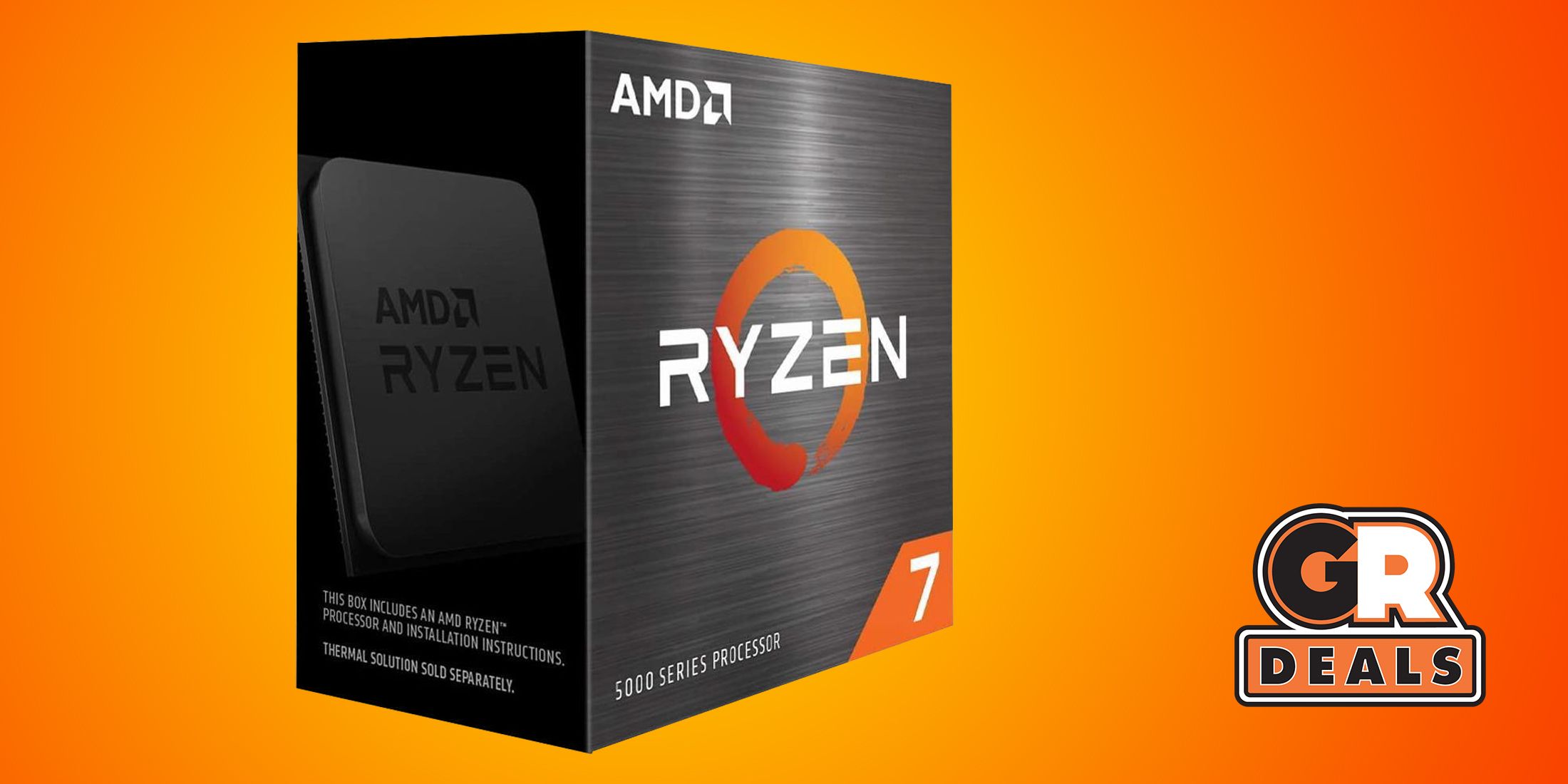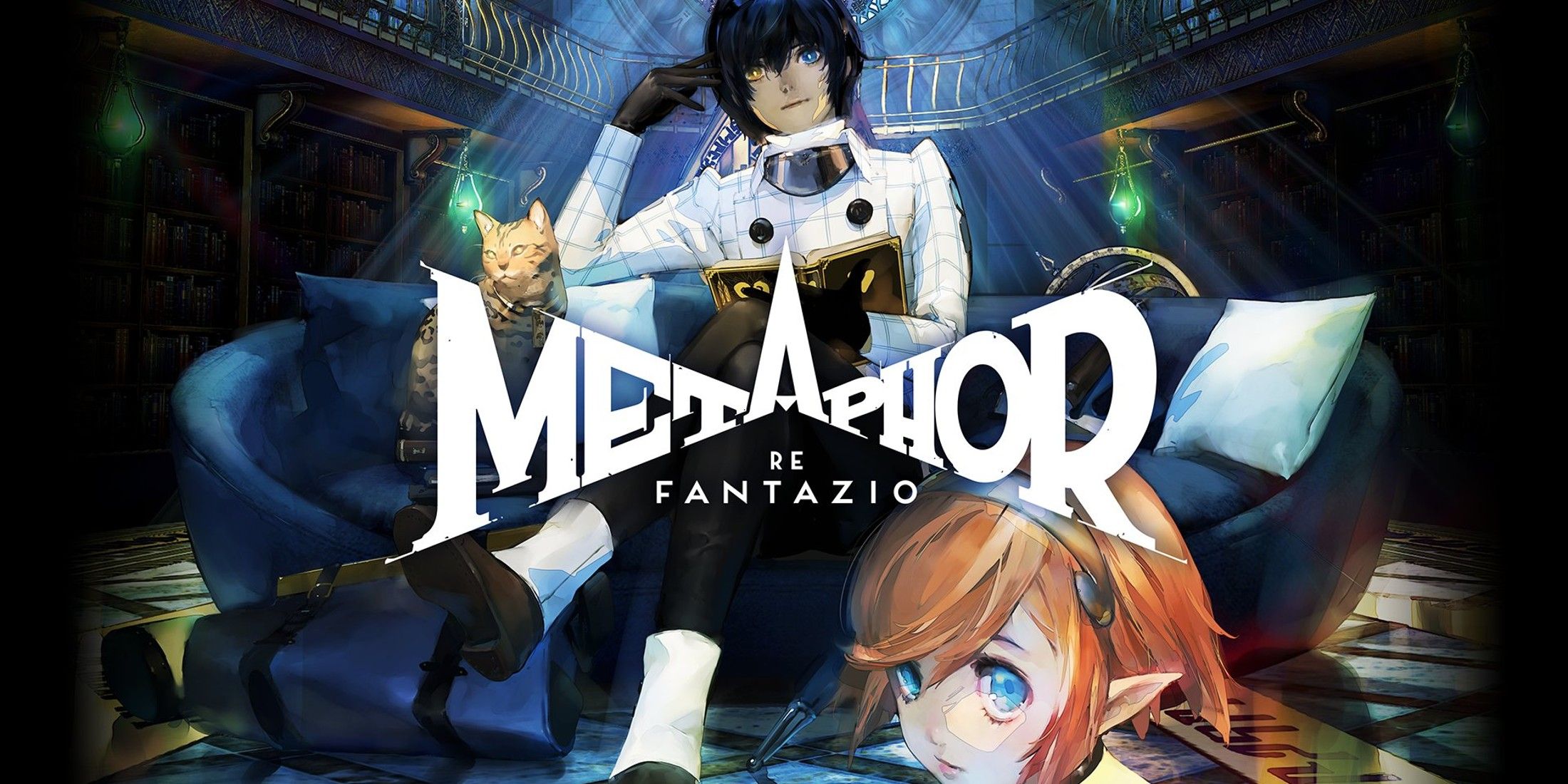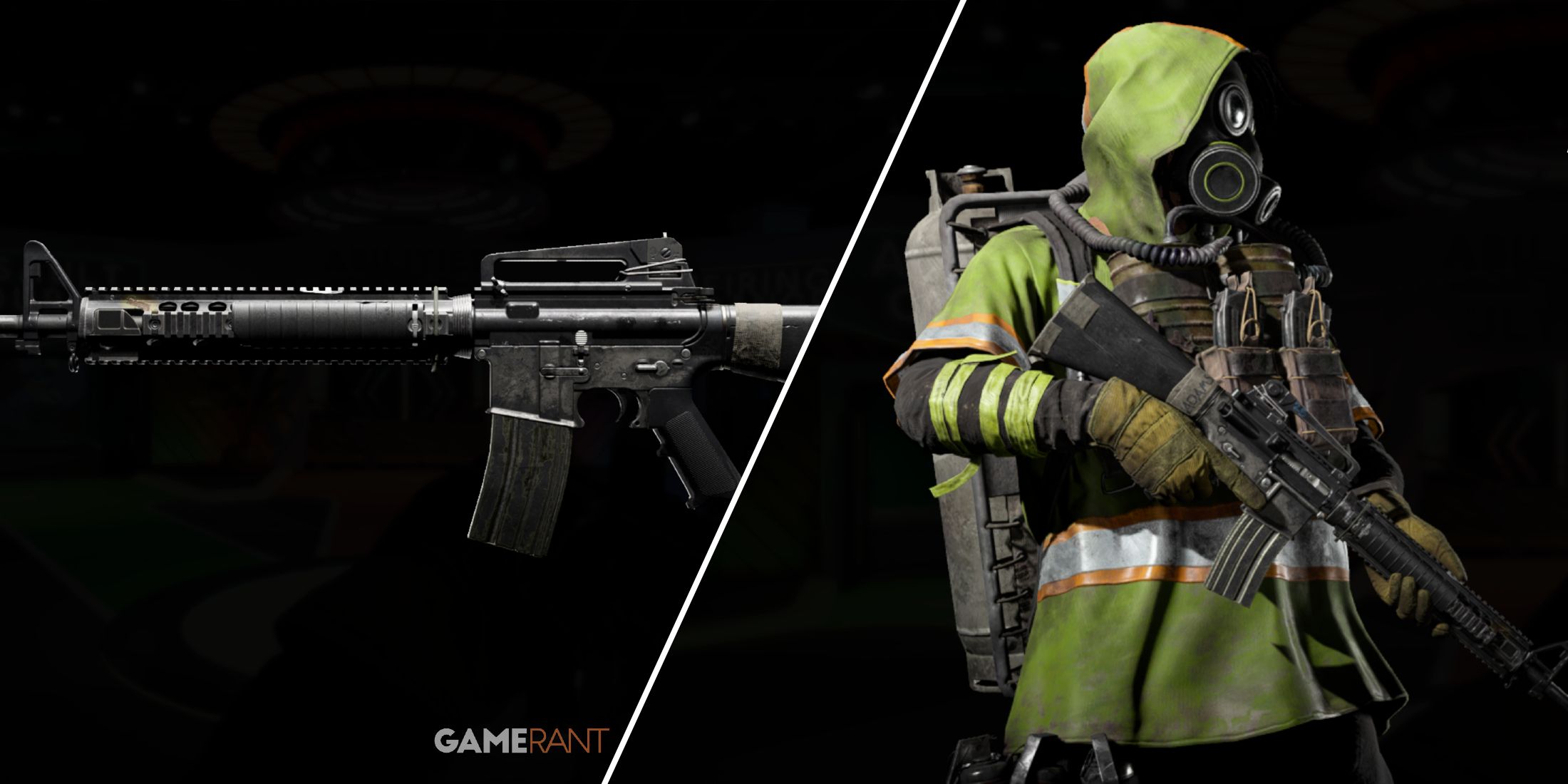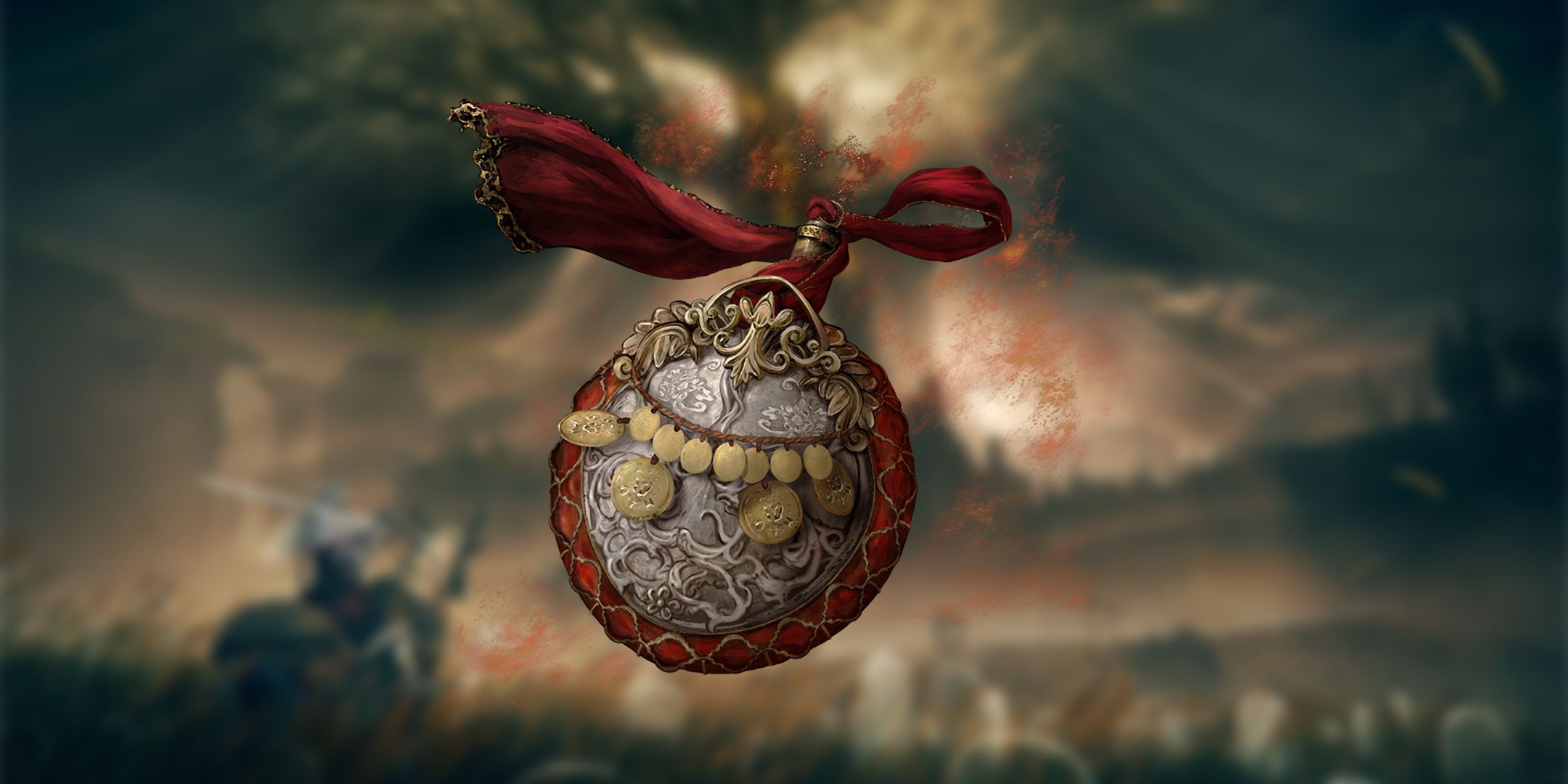It’s safe to say that expectations for Metaphor: ReFantazio have been high since its initial reveal at the June 2023 Xbox Games Showcase. As the first original game from Studio Zero, as well as the next major project from Persona 5 director Katsura Hashino following his departure from P-Studio, anticipation for Metaphor: ReFantazio has been, understandably, at a fever pitch. But every new bit of information revealed about Metaphor seemed to leave fans with only more questions. Curiosity over how much Metaphor would play or feel like a Persona or Shin Megami Tensei game while also moving the needle forward for that particular style of RPG seemed to rule the day.
Thankfully, anyone wondering about Metaphor‘s quality in the context of Atlus’ other prominent RPG franchises can breathe easy. Not only does Metaphor: ReFantazio blend the best parts of Persona and SMT along with a healthy dose of classic RPG inspiration, it transcends its myriad influences to become something greater than the sum of its parts and one of 2024’s unmissable games. It’s a tightly-paced and feature-rich experience that begs to be played by both Persona and RPG fans in general, and its blending of elements from Hashino’s work on the Persona franchise along with an addictive job system elevates it to be one of the greatest games in Atlus’ catalog.
The backbone of Metaphor: ReFantazio is its well-written and thematically dense story. Moving beyond the traditional confines of what players might encounter in a Persona game, Metaphor tackles similarly challenging issues that impact society on a larger level. To its credit, it offers no easy answers and doesn’t lean on weak platitudes. Instead, the plot and character development work in concert to address topical themes of discrimination, social stratification, and what it takes to unite a society toward a brighter future in the face of overwhelming opposition and conflicting interests. There are no easy answers in Metaphor, but the ones it offers to players feel well-earned given how the characters and their world develop throughout the story.
That story hinges around a singular event, the murder of the current reigning king. This regicide sets a series of events into motion that causes Metaphor‘s protagonist, a nameless hero with his fairy companion Gallica, to embark on a secret mission with hopes of restoring the deposed prince. The rest of the world has no idea that the prince is still alive following an assassination attempt years prior, and a small resistance has sprung up in hopes of restoring the rightful ruler to the throne. Without delving into spoiler territory, the shocking revelations regarding the conspiracy against the royal family and the protagonist’s place in it deliver an emotional gut punch and catharsis by journey’s end. But of course, that payoff would be impossible were it not for the excellent and endearing cast of characters.
Aside from being interesting and well-designed, the heroes and villains of Metaphor: ReFantazio rank among some of the best party members and antagonists in any RPG. To say that the game’s main villain, Louis Guiabern, is an RPG antagonist on the same level as Sephiroth or Kefka is not hyperbole, and the fact that it’s all too easy to empathize with him as much as you might hate him is testament to how three-dimensional both he and the rest of the cast are. The typical social bond system that has been a major element of the Persona series since Persona 3 returns in Metaphor, and developing those relationships yields similar rewards by further developing each ally’s personality while also benefitting the player in terms of their battle prowess.
There are plenty of nods to Persona‘s definitive elements in Metaphor: ReFantazio, but one area where the title strikes out on its own is with its combat and progression systems. Unlike the monster-collecting and fusion elements that are a cornerstone of both Persona and Shin Megami Tensei, combat and progression in Metaphor are centered around the Archetypes. Archetypes are essentially classic RPG Job classes, fittingly filling the archetypical roles that one would expect such as Healer, Warrior, Mage, and so on. But through developing relationships with allies and strengthening those bonds, players unlock advanced Archetypes, each of which has unique Synthesis attacks with other Archetypes both within and without a particular class lineage.
It’s a system with a staggering amount of depth, especially once players unlock the ability to preemptively see what skills an Archetype learns and identify available Synthesis attacks with other classes. Players can speak with informants in each region of Metaphor‘s map, obtaining valuable insight into a particular dungeon’s denizens and their weaknesses, for a price. Armed with this information and a little bit of planning, it’s not uncommon to waltz into an area and completely lay waste to enemies en masse by gaming the Archetypes and their unique abilities. The moment-to-moment gameplay in combat also borrows liberally from the Press Turn system, where exploiting enemies’ weaknesses yields more turns for the player and the chance to earn greater rewards from an “Unscathed Triumph”.
Similar to the Persona series from Persona 3 onward, the main quest of Metaphor: ReFantazio is governed by a calendar system. Except for certain days where special, story-related events occur, players have an afternoon and evening segment to devote to their choice of activities. Exploring dungeons consumes an afternoon, and following those adventures players must return to a nearby town for rest and recuperation. Thankfully, Metaphor is fairly generous when it comes to quest deadlines, meaning players have plenty of time to prepare in between major missions. During these segments, it’s possible to do any number of things that each ultimately contributes toward making the player and their allies more powerful.
There are 5 “Kingly Virtues” players need to strengthen throughout their journey (similar to the Traits in Persona), with higher levels unlocking more dialogue options that ultimately lead to higher-level bonds with allies (meaning advanced Archetypes and combat abilities). Additionally, there are bounties to collect, key items and treasures to find, and side-quests specific to each party member and ally’s Bond level that are worth pursuing in between the dungeon-crawling segments. And while the turn-based combat is a blast and as addictive as in the Persona and SMT series, Metaphor streamlines things by allowing players to execute enemies in real-time while dungeon-crawling without needing to enter a battle screen, provided there’s a significant level gap between the player and the foe.
Ahead of Metaphor‘s release, a lot of attention has been rightfully paid to the game’s breathtaking visuals, character designs, and art direction. Many of Metaphor‘s monster designs and the general atmosphere of the game are influenced by the 16th Century visionary artist Hieronymus Bosch, but Metaphor‘s cast are as varied and attractive as one would expect from an Atlus RPG. The world of Metaphor is essentially separated into 3 regions, with 8 tribes populating them. Each of these tribes has a unique appearance and features that distinguish them from other ones, and together with the stunningly designed environments make Metaphor‘s world feel like a fully realized place.
Of special note is Metaphor‘s score, with composer Shoji Meguro once again returning to contribute a series of incredible arrangements that add to the game’s general fantasy vibe. The songs themselves are a far cry from what Meguro composed for Persona 5 but are no less breathtaking, proving how important music is to the overall RPG experience by serving to enrich it and draw the player in. Along with its score, one of Metaphor‘s more unsung wins is its UI elements and menu design. The Persona games are no slouch when it comes to having menu and battle screens that visually pop, but Metaphor‘s stylized art direction makes them almost overwhelming in terms of their beauty and complexity.
A Fitting Cap to the ‘Year of the RPG’
This year has been host to plenty of incredible RPG experiences, with Atlus’ own Persona 3 Reloaded and Shin Megami Tensei 5: Vengeance among them, but Metaphor feels like the feather in the studio’s cap. One of the main questions surrounding Metaphor was whether players could expect a lengthy experience similar to Persona 5, and I’m happy to report that the main quest of Metaphor more than gives players their money’s worth. Comments from Hashino indicated that players could expect an 80-100-hour experience in Metaphor, with plenty of post-game content available for anyone looking to get more out of the title.
My own playthrough of the main story finished at 68 hours, with plenty of time afforded to side quests and additional activities. Had I pursued some other things that I put to the side for the endgame, I could easily see a standard playthrough taking most players about 80 hours, especially if they need to retry certain challenging bounty hunts or main story boss fights.
But even at its somewhat intimidating triple-digit length, Metaphor feels like a brisk experience. I would argue that the game is one of the more perfectly paced RPG titles in a long time, with nary an ounce of fat on it, and each moment of the main quest and beyond feels worth the player’s time. If there is a knock against Metaphor, and it’s a minor one, it’s that some of the harder boss fights boil down to trial and error with gaming the Archetype system, but that could also potentially be attributed to my brute-forcing of certain encounters intended for the post-game.
Studio Zero and Katsura Hashino have made a bold statement with Metaphor: ReFantazio, immediately cementing the title as one of Atlus’ greatest RPGs and an impressive debut for the new development house. Much of what made Hashino’s work on the Persona series so special returns here in Metaphor and will feel familiar to fans of the series, but the subtle ways it pushes the envelope for many of that franchise’s signature elements makes Metaphor distinctly its own game that RPG fans should not miss. The greatest RPGs are experiences that stick with the player long after the credits roll and warrant repeat playthroughs in the future, and even at 80-100 hours, Metaphor is a game I can easily see myself returning to time and again as one of my new favorite role-playing games.
Metaphor: ReFantazio launches October 11 for PC, PlayStation 5, and Xbox Series X/S. Game Rant was provided with an Xbox code for this review.

/cdn.vox-cdn.com/uploads/chorus_asset/file/2317920/alienisolation5.0.jpg)






